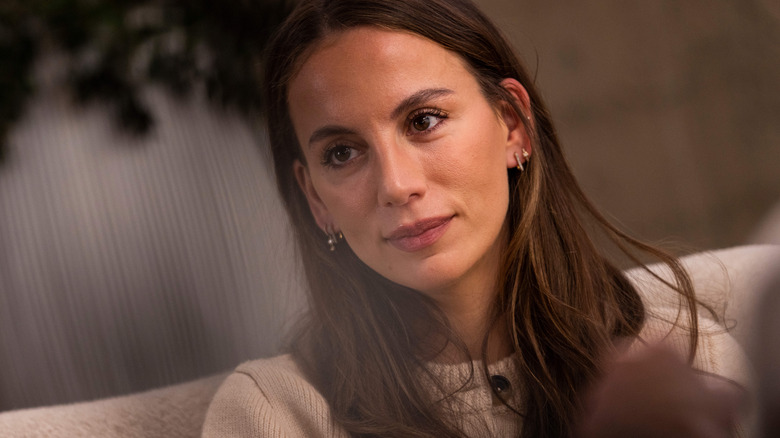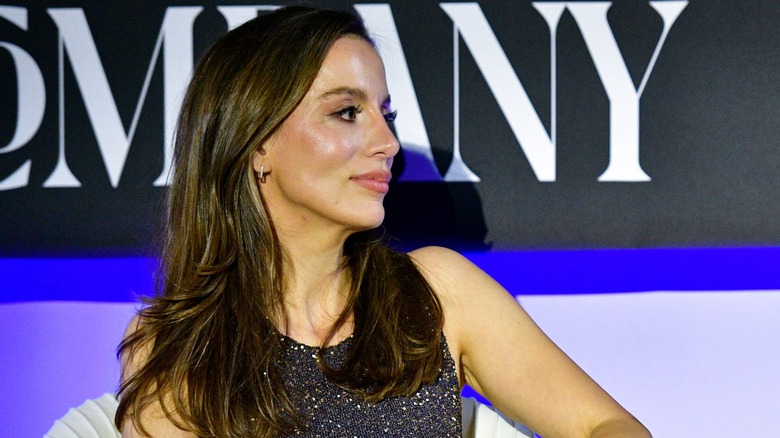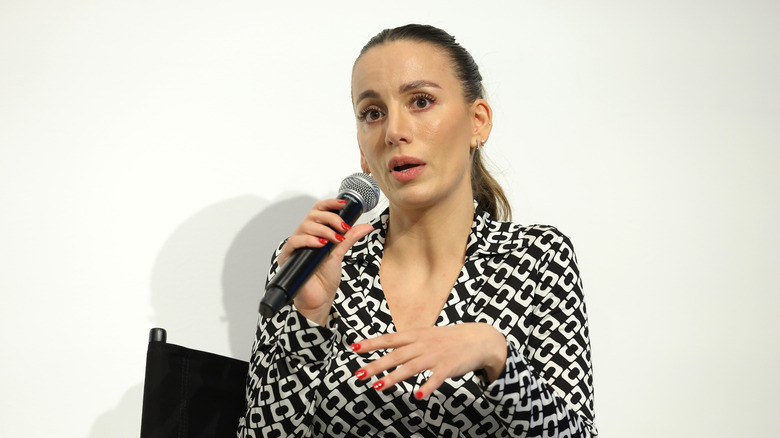Who Is Mira Murati? The Story Behind Her Brief CEO Role At OpenAI
It's been a tumultuous week for ChatGPT's parent company, OpenAI. Days after a developer conference showcased a new way to customize ChatGPT bots, the board fired longtime CEO Sam Altman. In his absence, the board appointed Mira Murati as interim CEO while it searched for a replacement.
Murati joined OpenAI in 2018 as Vice President of applied AI and partnerships. Later, she rose to the position of Chief Technology Officer. While at OpenAI, she oversaw the development of Dall-E, Codex, and ChatGPT. The company stated that her "unique skill set" would facilitate "a seamless transition while it conducts a formal search for a permanent CEO." But her stint only lasted two days before Twitch co-founder Emmett Shear replaced her.
For many, the quick turnaround was almost as shocking as the firing of Altman, as Murati appeared more than capable of holding the fort for longer than a couple of days. Born in Albania in 1988, Murati acquired a Bachelor of Engineering in mechanical engineering from Dartmouth College in 2012. Her interest in tech saw her working at an augmented reality start-up, Leap Motion. She also notably helped develop the Model X EV at Tesla.
Why she joined OpenAI
While at Tesla and Leap Motion, Murati was exposed to AI. She told Wired, "I very quickly believed that AGI would be the last and most important major technology that we built, and I wanted to be at the heart of it," after applying AI to the real world at her previous positions. Back then, OpenAI and DeepMind were the only ones seriously looking into the tech, and she wanted to get in on the ground floor. In an interview with Fortune, she explained that she chose OpenAI because she resonated with the company's mission " to ensure that artificial general intelligence benefits all of humanity."
When Murati joined OpenAI, it was a nonprofit research lab with just a small number of employees. This starkly contrasts the company's current state, with its over 700 employees and a handful of investors funding the project. The shift to for-profit is one Murati deemed necessary, as she noted that this large-scale research doesn't come cheap.
She says the company's culture has experienced a significant shift since she joined, now that it is less research and more about producing a product. But she told Wired the most important thing "was protecting the nonprofit's mission."
Murati also believes public testing is the way to improve generative AI. In an interview with FastCompany, she noted that although it is possible to develop the tech in a vacuum, the question becomes, "Are you actually moving in the right direction?"
An engineer seriously concerned about AI safety
Murati is pro-regulations when it comes to the development of generative AI. Although she believes the technology will soon become incredibly important and beneficial to the world, she told The New York Times it must be implemented "in a way that's responsible and safe." Murati believes that this technology will likely affect "international politics more than anything we've ever built." As a result, she argued that there is a strong need for regulations from companies developing the technology and governments to mitigate the impact.
She also stated the importance of addressing how generative AI could affect those in creative fields, a topic that was a focus of the recent Writers Guild of America (WGA) strike. The engineer-turned-CEO told Wired that it is paramount to develop the product. To do this, she expressed that OpenAI has been in touch with publishers and content makers to figure out how to navigate the copyright concerns.
Safety may be a big deal for Murati, but not everyone feels the same way. The ex-interim CEO expressed concern to Fortune that there is a "race to the bottom on safety" in the industry. She argued that this spawns out of the idea that it's easier to get ahead if you take shortcuts and don't properly address safety.
She's team Altman
Murati is among 700+ employees who threatened to quit over the firing of Sam Altman. Their demands, detailed in a letter, call for the resignation of the board. The letter reads: "We are unable to work for or with people that lack competence, judgment, and care for our mission and employees." The rallied group believed the board was unfair in firing Altman, arguing that there was insufficient evidence that Altman was "negotiating in bad faith." Murati worked with Altman for a considerable time and has only spoken highly of him publicly, so it's no surprise that she is among those displeased with how the situation has gone down.
The letter also alleged that the board "Informed the leadership team that allowing the company to be destroyed 'would be consistent with the mission." This same mission swayed Murati to join the company, albeit with a different interpretation. The group also claimed that Microsoft would gladly take in all OpenAI employees. If things don't get remedied, Murati could be among those joining Altman at Microsoft.
One board member, Ilya Sutskever, took to X, formally known as Twitter, to apologize for their involvement in the decision to release Altman. But so far, there has been no public statement from OpenAI about the ongoing grievances.



